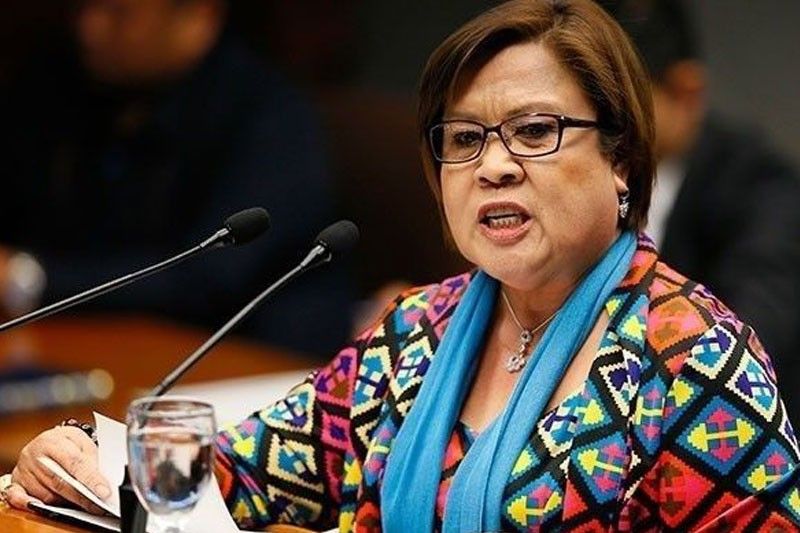Senate to probe poor hygiene, sanitation in Philippine

MANILA, Philippines — The Senate is set to conduct an inquiry into the lack of proper hygiene and sanitation facilities in Filipino households, schools and health facilities, which pose serious risks to people’s health and overall well-being.
The probe was prompted by Senate Resolution 254 filed by Sen. Leila de Lima seeking a review and possible amendments of the 44-year-old Presidential Decree No. 856 or the “Code on Sanitation of the Philippines” to determine the issues concerning its enforcement.
“The appalling hygiene and sanitation situations have been a long-standing problem and issue in the country and yet solutions to this still seem farfetched,” De Lima said.
“Such poor hygiene and sanitation facilities are detrimental to the lives and health of Filipinos, particularly the youth, and failure of the government to provide one of the basic necessities in life constitutes a grave moral deficiency and reckless disregard for everyone’s life and safety,” she added.
De Lima cited the admission of Health Secretary Francisco Duque that only 70 percent of Filipino households have improved toilet facilities that are not shared with other households, showing that around 26 percent or approximately 26 million Filipinos still use unimproved facilities like buckets and open-pit latrines.
Meanwhile, figures released by the World Health Organization (WHO) and the United Nations Children’s Fund (UNICEF) Joint Monitoring Programme for Water Supply, Sanitation and Hygiene (JMP) revealed that three in 10 health facilities in the country lack access to clean toilets.
WHO Representative in the Philippines Dr. Gundo Weiler said that “health care facilities won’t be able to provide quality care to people if there is no safe water, toilet or handwashing facility.”
De Lima said there are reportedly around 3,628 public schools in the country, both elementary and secondary, that have no regular access to safe and clean water as of 2016. During the start of school year 2019-2020, schools were said to be welcomed by the “same old problems,” including inadequate restroom facilities.
Sen. Cynthia Villar earlier expressed disappointment over the measly budget the Department of Health (DOH) has allocated to address open defecation next year.
Villar estimated that there is at least 3.5 million Filipinos practicing open defecation in Metro Manila or about 700,000 households needing adequate sanitary toilet facilities.
She also shared her frustration over the delay in the construction of toilets in Barangay 649, Baseco Compound in Tondo, which only succeeded to build 500 toilets in the period of three years.
As one of the densely populated barangays in Manila, Barangay 649 has a total population of 43,000. Of the 8,000 households, 80 percent have no access to a sanitary toilet facility, Villar said.
‘Dutertenomics’ eases poverty
Meanwhile, a lawmaker said the administration’s “Dutertenomics” has eased poverty in the country.
Albay Rep. Joey Salceda said the Tax Reform for Acceleration and Inclusion (TRAIN) law has been instrumental in funding the administration’s massive infrastructure program “Build, Build, Build,” lifting about six million Filipinos out of poverty.
Salceda, chair of the House ways and means committee, said infrastructure ramped up from 2.8 percent before Duterte to 5.2 percent through the Build, Build, Build, which has produced two million jobs.
“The poverty reduction performance of the government is a proof that the Dutertenomics is working,” he said.
He added that tax reform through TRAIN under Package 1, which he principally authored, has raised tax to gross domestic product at 14.7 percent in the first quarter of 2019 as well as social investments in health, basic services and technical and higher education.
Early this year, Salceda predicted a strong economic takeoff for the country due to policy reforms and infrastructure projects being undertaken by the government.
“This is by far the most significant positive news in the first three years of President Duterte’s administration – the golden era of Philippine infrastructure,” he said.
In 2017, the government laid down its goal of lifting some six million Filipinos out of poverty, at an average of one million a year, until Duterte’s term ends in 2022.
Quoting reports from the Philippine Statistics Authority, Salceda said the number of poor Filipinos decreased by almost six million from 23.5 million in 2015 to 17.6 million in 2018.
- Latest
- Trending




























